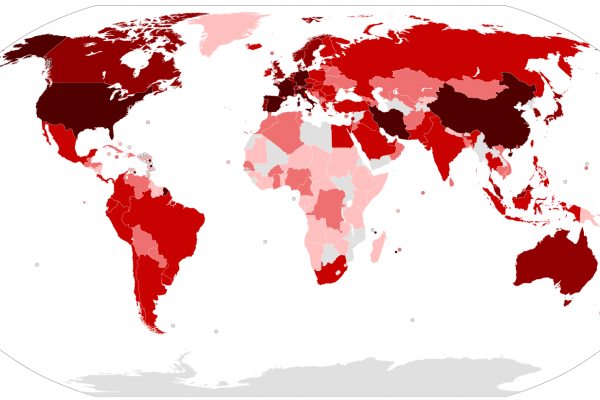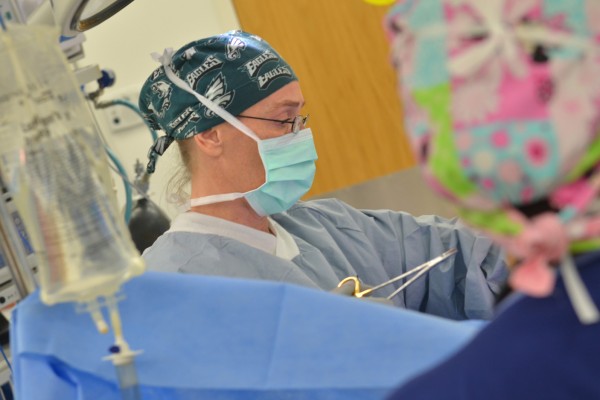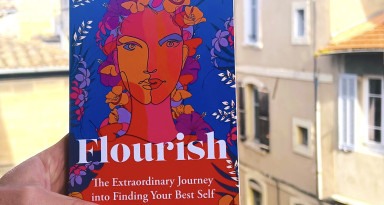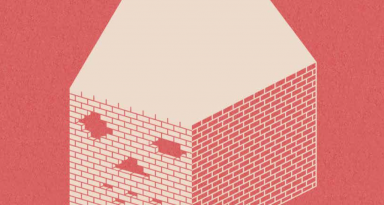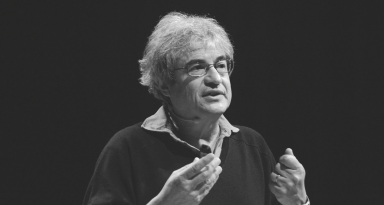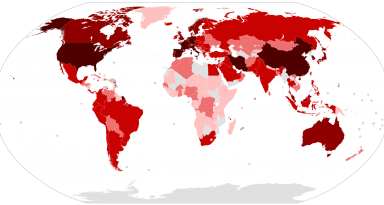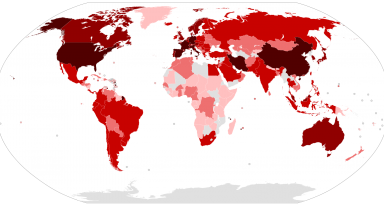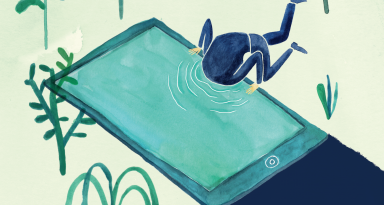We are publishing submissions about the COVID-19 crisis from readers daily on NewPhilosopher.com in the hope that it can help us all make sense of what is happening, and as a historical record of how it made us feel. Here are your thoughts, from around the world.
By Chet Shupe, Arizona, USA
"The situation is very scary and very real, but the camaraderie at work is something I’ve never seen before. It’s usually like, you can’t wait to get off work, because it’s been a busy day, and you just want to go home. But now, when you’re home, you just want to be at work."
—Elyse Isopo, critical care nurse at North Shore University Hospital, Long Island NY, during the Coronavirus crisis.
During the coronavirus pandemic, retired doctors and nurses are volunteering by the thousands, at risk to their own lives, to serve those in need. CEO’s are taking huge pay cuts—or no remunerations at all—to ease the burdens on their employees. Celebrities are donating millions. Legislative bodies are attending to real and present needs, rather than remaining ideologically incapacitated.
These people are behaving “unnaturally” in a remarkable way. I say "unnaturally”, because we civilised people normally spend our lives focused on realising personal ambitions. During times of crisis, however, people are naturally inspired to serve others, even at the risk of their own wellbeing. Are these people crazy, or is “normal” civilised behaviour what's crazy? These two kinds of behaviour could not differ more. One is focused almost entirely on serving self, the other on serving others. They can’t both be normal.
What is normal human behaviour? Civilised people think our present way of life is natural. It's difficult for us to appreciate the fact that our six thousand years of human civilisation represent only milliseconds in evolutionary time. Before civil rule, there were no mass cultures, thus, no rules, laws or moral values to live by. People survived by taking care of one another in the context of intimate, interdependent relationships. But, we moderns are subjects of civil rule, so we depend on money for survival, not each other. This artificial dependence has broken the spiritual connections inherent to humankind’s natural way of life.
Yet, emotionally, we remain the same beings that humans were long before mass cultures existed. So, when facing a crisis, our emotions impel us to respond just as our distant ancestors did, who lived in intimate cultures. Crisis situations remind us of something that our predecessors could never have forgotten: We are all in this together. Instantly, this sense of togetherness restores our spiritual connections, and we find ourselves placing the needs of others above our own. We don't realise it, but these spiritual connections are the same ones that once bonded natural human families in a state of unconditional love. With our concerns for one another restored, our common sensibilities reassert themselves, and we moderns understand what all humans knew, when we depended on each other to survive—that serving the needs of others, not our own, is what’s important, if we want to participate in life.
It is my assertion that, because we are hard-wired for interdependent relationships, no human is whole without them. Bestselling author Brené Brown, who writes about the connection between vulnerability and love, apparently agrees. When asked, on CBS's 60 Minutes, if her books are found in the "self-help" section, she replied, “Yes, but that bugs the hell out of me. I don’t think we’re supposed to help ourselves. We’re supposed to help each other. My message is clear. We are neuro-biologically hardwired to be in connection with other people.” A notable quote by late author Joseph Campbell seems to reveal that he, too, recognised the seriousness of our emotional predicament: He said, "I don’t believe people are looking for the meaning of life as much as they are looking for the experience of being alive."
No lesson is worth the terrible price the Coronavirus is exacting, in human suffering. But living through it has already given many an unanticipated glimpse of what it means to be human. As people like Elise Isopo, quoted above, and countless others, respond to this crisis, their lives are being stamped with unforgettable memories, through temporarily sharing the profound experience of being alive.
